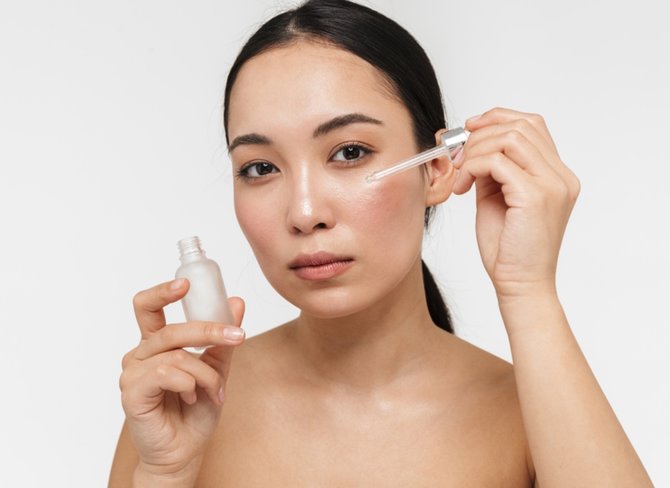Hyaluronic acid, a naturally occurring substance in our body’s connective tissue and skin, has emerged as a cornerstone of skincare products worldwide. Found in everything from moisturizers to serums and masks, this humectant is celebrated for its ability to hold up to 1000 times its weight in water, making it a go-to ingredient for hydration. Its extensive use in the skincare industry is backed by scientific research attesting to its numerous benefits of Hyaluronic Acid, including improved skin hydration, reduced wrinkle depth, and enhanced overall skin health.
As consumers increasingly prioritize ingredients that are effective and skin-friendly, hyaluronic acid holds strong appeal. In this article, we delve into the multitude of benefits this power-packed ingredient brings to your skincare routine and why it has garnered a place of prominence in the beauty industry.
Top 8 Benefits of Hyaluronic Acid in Skin

In recent years, hyaluronic acid has gained well-deserved popularity in the skincare world for its remarkable benefits.
1. Superior Hydration:
Hyaluronic acid is a natural humectant, meaning it draws moisture from the surrounding environment and locks it into your skin. Its ability to hold up to 1000 times its weight in water helps to provide intense hydration, keeping your skin plump and radiant.
2. Combatting Aging Signs:
Hyaluronic acid has the ability to fill in fine lines and wrinkles, making the skin look smoother and more youthful. Its intense hydrating properties lead to increased skin elasticity and reduced wrinkle depth.
3. Skin Health and Radiance:
Hyaluronic acid benefits extend beyond surface-level hydration. It aids in skin repair and regeneration, supports the skin’s barrier function, and helps to protect the skin against environmental aggressors like pollution, harsh weather, and UV radiation.
4. Compatibility Across Skin Types:
Hyaluronic acid benefits gentle and safe for all skin types – be it dry, oily, combination, sensitive, or acne-prone. Its non-comedogenic nature ensures it doesn’t clog pores, making it suitable even for those prone to breakouts.
5. Boosts Effectiveness of Other Skincare Ingredients:
When used in tandem with other skincare ingredients, hyaluronic acid can enhance their absorption, amplifying their effects.
6. Non-Irritating and Hypoallergenic:
Hyaluronic acid is also known for being non-irritating and hypoallergenic, reducing the risk of skin reactions. This makes it a reliable choice for individuals with sensitive skin.
7. Versatility in Skincare Products:
Hyaluronic acid can be found in a wide range of skincare products, from serums and moisturizers to masks and eye creams. This makes incorporating it into your routine quite simple.
8. Immediate and Long-Term Effects:
One of the beauties of hyaluronic acid is its instant skin-refreshing effect. Upon application, skin feels and appears hydrated, softer, and plumper. Over time, consistent use leads to improved skin health and resilience.
Hyaluronic acid offers a multitude of benefits for the skin, from hydration and anti-aging to skin protection and compatibility with various skin types. Its inclusion in your skincare routine can make a noticeable difference, enhancing skin’s overall health, texture, and appearance. Hence, this naturally-occurring substance rightfully earns its place as a star player in skincare.
Tips for Hyaluronic Acid in Skincare Routine

Hyaluronic acid, a skincare powerhouse, is renowned for its hydrating properties and anti-aging benefits. Despite its scientific-sounding name, incorporating hyaluronic acid into your daily skincare routine can be simple and effective. Here are some practical Tips for Hyaluronic Acid in Skincare Routine to guide you through the process:
1. Understand Your Skin’s Needs:
Every skin type can benefit from the hydration that hyaluronic acid provides, but it’s particularly beneficial for those with dry or mature skin. However, if you have oily skin, a light hyaluronic acid serum might provide sufficient moisture without feeling heavy.
2. Select the Right Product:
Hyaluronic acid can be found in various skincare products, from serums and creams to masks and even injectables. Serums are often recommended as they are highly concentrated and penetrate deeply into the skin. If your skin is extremely dry, a cream or lotion containing hyaluronic acid may provide additional moisturizing benefits.
3. Apply on Damp Skin:
For optimal benefits, apply hyaluronic acid on damp skin, then immediately lock it in with a moisturizer. This way, the hyaluronic acid draws the moisture into your skin and the moisturizer helps seal it in.
4. Pair with Other Beneficial Ingredients:
Hyaluronic acid works well with a variety of other skincare ingredients. For example, pairing it with vitamin C can enhance its hydrating capabilities and give your skin a brighter appearance. Using it alongside retinol can also help offset some of the dryness often associated with retinol use.
5. Frequency of Use:
Hyaluronic acid is gentle enough to be used twice a day, in the morning and at night. However, always monitor your skin’s response and adjust accordingly. If your skin starts to feel too heavy or greasy, you may want to reduce the frequency or switch to a lighter formulation.
6. Seasonal Considerations:
During the drier winter months, you might want to increase your use of hyaluronic acid to combat seasonal skin dryness. In contrast, during the humid summer months, a light hyaluronic acid serum might be enough to keep your skin hydrated without feeling too heavy.
7. Pat, Don’t Rub:
When applying hyaluronic acid, gently pat the product into your skin instead of rubbing it. This method can help the product absorb more effectively and minimize any potential for irritation.
Incorporating hyaluronic acid into your skincare routine can provide significant benefits. However, as with all skincare products, it’s essential to be aware of your skin’s unique needs and adjust accordingly. With a little bit of experimentation, you can find the right balance and enjoy the skin-plumping, hydrating benefits of this skincare superstar.
Safety and Side Effects of Hyaluronic acid

Hyaluronic Acid (HA) is a naturally occurring substance in our bodies, and when used in skincare, it’s generally deemed safe for all skin types. However, like any skincare ingredient, there may be potential side effects of Hyaluronic acid to be aware of.
1. General Safety: HA is typically well-tolerated, causing minimal skin irritation or allergic reactions. This makes it suitable for most skin types, including sensitive ones.
2. Skin Reactions: Some people might experience skin discomfort like redness, itchiness, or rashes after applying HA products. If these occur, it’s advised to stop using the product and consult with a dermatologist.
3. Potential Dryness: In drier climates, HA could draw moisture from deeper skin layers to the surface, potentially causing dryness. To avoid this, apply a moisturizer after your HA product to lock in the moisture.
4. Pregnancy Use: While topical HA doesn’t appear to pose risks during pregnancy, it’s always best to consult with your healthcare provider before implementing new skincare products during this time.
5. Injectable HA: Injectable HA, as in dermal fillers, carries a different set of potential side effects. These may include bruising, swelling, or in rare cases, allergic reactions. Ensure these procedures are done by qualified healthcare professionals to minimize risks.
6. Patch Test: Always perform a patch test when using a new HA product. Apply a small amount on your inner arm and wait 24 hours to see if any adverse reaction occurs.
7. Interactions with Other Ingredients: HA is compatible with most skincare ingredients. However, it’s still essential to consider the other ingredients in the product, as they may not all suit your skin.
Conclusion
Hyaluronic acid stands as a cornerstone in skincare, promising optimal skin health. This powerful hydrator, naturally found within our bodies, delivers intense moisturization, diminishes fine lines, and lends a youthful, dewy glow. While potential side effects exist, they are typically mild and infrequent, making HA a universally loved ingredient. Always be mindful of your skin’s reaction to new products and don’t hesitate to consult a professional if uncertainties arise. Embrace hyaluronic acid benefits and incorporate it thoughtfully into your skincare routine to elevate your skin to new heights of health and radiance.


